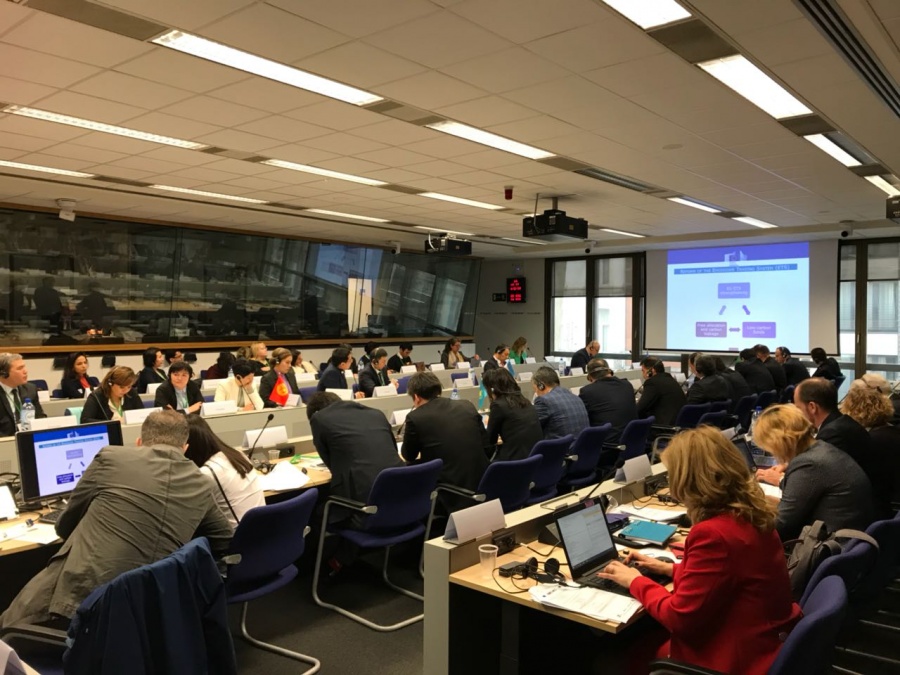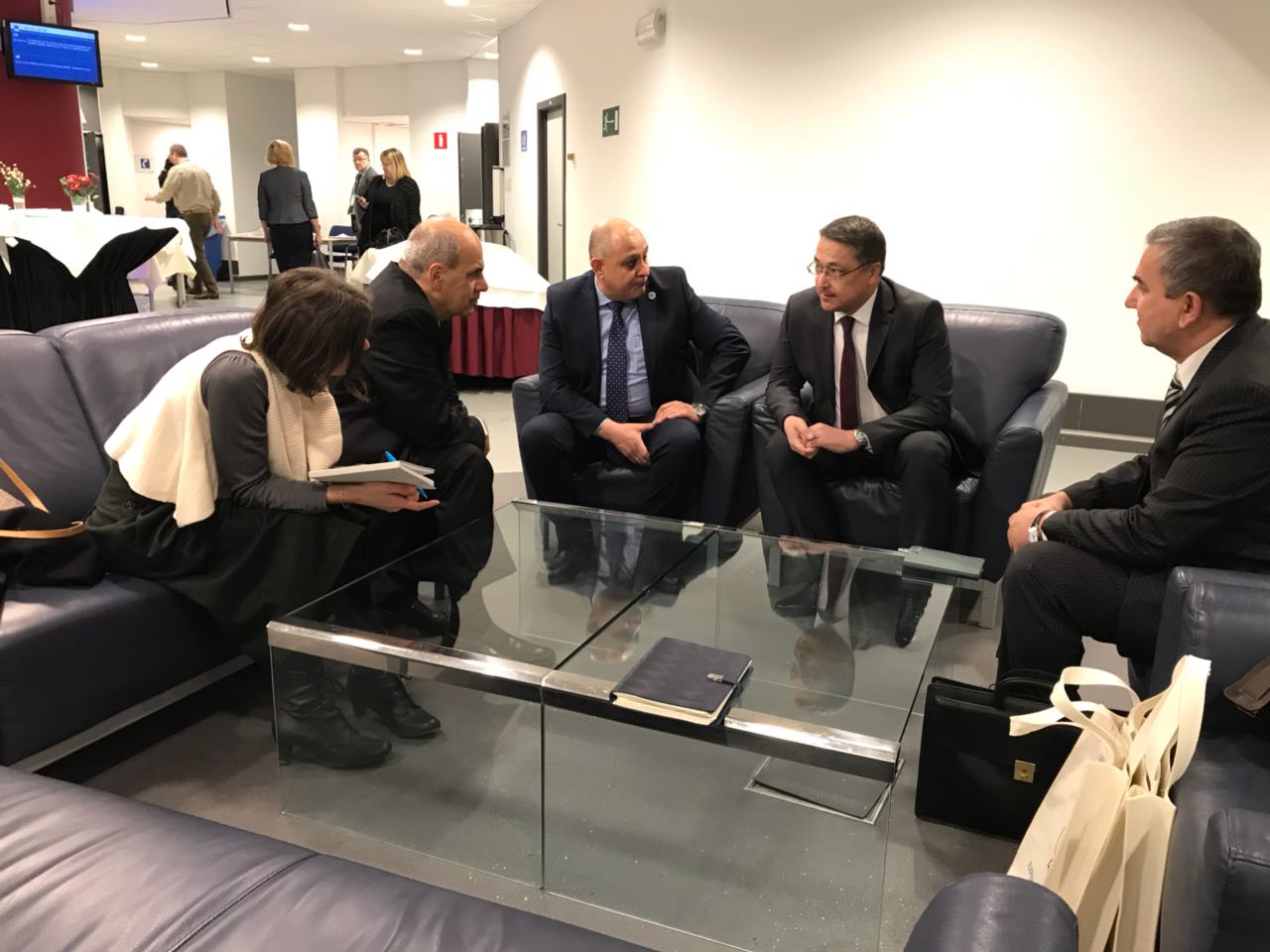riverbp
News / International news
The European Union and Central Asian countries discussed the strategic partnership in the field of environment and water resources
 09.02.2018
09.02.2018
BRUSSELS. February 6-7, CAREC took part in the 7th meeting of the European Union-Central Asia Environment and Climate Change Working Group. Participants discussed recent achievements in the development of environmental policy and outlined ways to improve the access of Central Asian countries to "green" financing from International Financial Institutions.
The cooperation platform was created on the basis of the EU Strategy for Central Asia in 2009. Since August 2016, the platform’s second phase WECOOP2 is being implemented. This project will run until February 2019.
The EU Special Representative for Central Asia, Ambassador Peter Burian noted that there have been positive developments on cooperation in the Central Asian region. It is good that Central Asian countries are showing increasing interest in regional cooperation.
At the first day of the meeting participants discussed opportunities for cross-sectoral sustainable investment in climate as one of the new areas of cooperation on environmental protection and water resources.
CAREC Executive director Dr Abdullaev highlighted that intersectoral cooperation is developing in the region being one of the priorities of national development strategies in CA countries. This important and effective mechanism of cooperation requires strong support, especially now, when countries themselves are willing to move forward in this direction.
To promote the development of opportunities for such investments is the main objective of the NEXUS project. The Regional Environmental Centre for Central Asia is implementing this project with the support of the European Commission in cooperation with the International Union for Conservation of Nature.
A great deal of attention was paid to the financing from International Financial Institutions. Representatives of the institutions spoke about current projects in Central Asia, prospects and requirements for the preparation of investment projects.
The second day of the meeting was mainly devoted to presentations of investment projects from the Central Asian countries for consideration of IFIs. In addition, parties discussed key directions for further development of EU-CA regional cooperation in the field of environmental protection and climate change.
The EU project manager in Kazakhstan Snejana Popova spoke about WECOOP2's work plan for the remaining period until the end of the project in February 2019.
International and regional organizations of Central Asia also made their proposals. CAREC Executive director Dr Iskandar Abdullaev stressed that all economic issues are closely interrelated with each other.
Loss of biodiversity and reduced environmental sustainability lead to climate change, which in turn contributes to the degradation of water and land. This leads to a decline of cities and settlements, resulting in increasing economic and social pressure. And then the cycle repeats itself. Environmental monitoring and reporting shows that human-environment interactions are being disrupted and needs to be revisited.
At the conclusion of the 7th meeting of the EU-CA Working Group on Environment and Climate Change, parties made proposals on the preparation of the next meeting and further work of the Platform after the end of WECOOP2 project in 2019.
The next meeting of the Working Group will be held as part of the II
Central Asian International Environmental Forum on June 5-8, 2018, in
Tashkent, Uzbekistan


